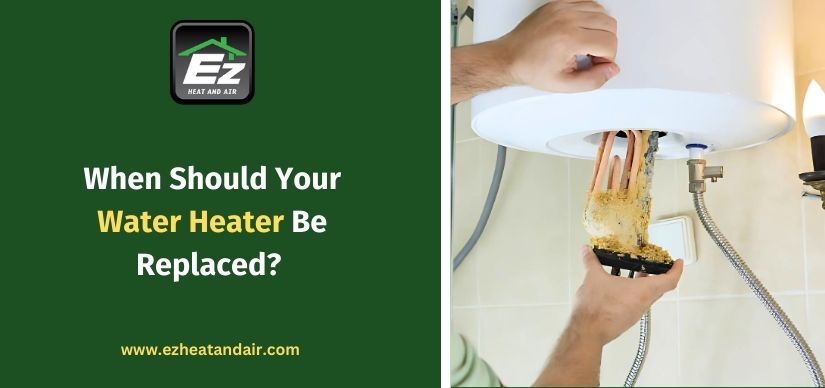When Should Your Water Heater Be Replaced?
Views : 3039

What is the lifetime pressure of water heaters?
Signs Your Water Heater Needs Replacement
Inconsistent Water Temperature
Rusty Water
Strange Noises
Leaks Around the Tank
The Age of the Unit
Benefits of Replacing Your Water Heater
Increased productivity
Consistent Supply of Hot Water
Calmness of Mind
When to Choose a Tank-Style Water Heater
The Role of Professional Water Heater Services
Inspection and Diagnosis
Replacement and Installation
Repair and Maintenance
Tips for Increase Your Water Heater Lifespan
- Regularly Flush The Tank: Sediment accumulates with time in tank-type water heaters and reduces efficiency and can do a lot of damage. So, it is recommended that flushing the tanks every year will deter this from happening.
- Check The Anode Rod: The anode rod resists rust in the tank. Replacement of the anode rod has to take place after every 3-5 years, to increase the lifespan of the heater.
- Professional Maintenance: Water heater services routine check-ups that help to catch small problems before they become major.
- Temperature Adjustment: You would set the thermostat at 120 Degrees F, which reduces wear on the heater and drains the energy less.
Tank Type of Water Heater vs Tankless Model: Which One For You?
- Tank-Style Water Heaters: Less costly, optimal for a family where hot water usage is at a high level, but lack efficiency after a fair amount of time.
- Tankless Water Heaters: High first cost, unlimited hot water supply, and higher energy efficiency. Better for smaller homes or those wanting to cut their energy consumption.
Conclusion
FAQs
Q1. When should I consider replacing my water heater?
Signs that suggest you should observe: temperature coming in water is unstable; rusty water; strange noises; leaks; or an old unit goes beyond its life span of 8-12 years for tank-style water heaters. If you observe these symptoms, you should consult professional water heater services to assess replacement.
Q2. Average lifespan of a water heater in years?
The duration of a water heating appliance depends on its type. Tank-style heaters last around 8-12 years, while tankless ones can serve as long as 20 years with appropriate maintenance and might prolong either type's lifespan.
Q3. I need to fix my water heater instead of replacing it.
Even small leaks or sediment build-up may sometimes be repaired. But an old and poor-performing unit with major problems might best be replaced with a newer model. Ask a professional water heater service for a proper assessment.
Q4. Why replace a water heater?
It improves the home into obtaining efficiency, reducing energy costs for the hot water, ensuring a consistent supply of hot water at all times and avoiding unexpected breakdowns. Today heating appliances are equipped with better technology than older model systems. Whether tank-style or tankless, they offer better performance.
Q5. Replace it with either a tank-style or tankless water heater?
This needs to be regarded in terms of the demands of the household. Tank-style water heaters are economically wise for your high water consumption; on the other hand, tankless ones save energy and provide you with an unlimited supply of hot water. Consult professionals on which option serves your preferences and suits your budget.